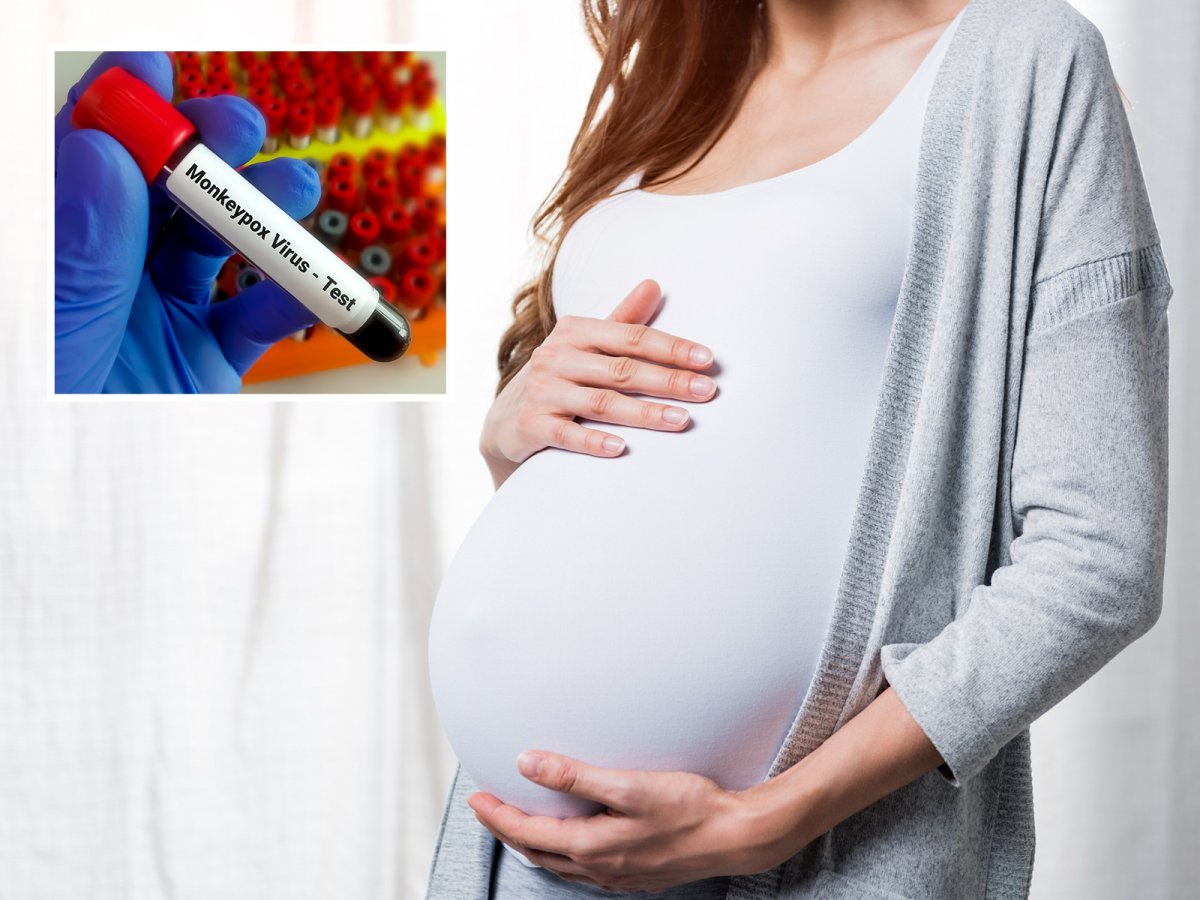As the outbreak of monkeypox in non-endemic countries continues into its second month, officials are focusing on the potential risk to groups that are more vulnerable to the infectious diseases—such as young children and pregnant women.
An article in Ultrasound in Obstetrics & Gynecology, published last week, provided some guidance for managing monkeypox in pregnancy, including recommendations that pregnant women with active monkeypox be given the opportunity to deliver by Caesarean section.
Yet research into monkeypox in pregnancy remains sparse.

Monkeypox, an infectious disease originating in monkeys, is more commonly found in western and central African countries.
As part of the current outbreak, the World Health Organization (WHO) has documented 1,285 cases of monkeypox in 28 non-endemic countries as of June 8, most of which did not have travel links to countries in which the illness is endemic.
The illness is passed on through close contact with an infected person and common symptoms include fever, aches, swollen lymph nodes and a rash that turns into raised lesions, although WHO notes that a number of cases in the current outbreak have not necessarily followed the traditional medical presentation.
The risk to the general public is generally low, the organization says, and most people recover fully without treatment. There have been no deaths reported in non-endemic countries so far, but babies and young children are at greater risk of serious illness, WHO says.
"The World Health Organisation states there could be adverse consequences for pregnant women and babies if they become infected, including congenital monkeypox, miscarriage or stillbirth, which is why we have provided clear guidance for healthcare professionals in this paper," Dr. Edward Morris, President of the Royal College of Obstetricians and Gynaecologists, said in a press release following the publication of the article last week.
Precautions for Expectant Parents
The article reiterated WHO guidance that monkeypox can be transmitted to unborn babies via the placenta, leading to congenital monkeypox, or by close contact during childbirth or after.
It quoted a study of individuals admitted to hospital with the illness in the Democratic Republic of Congo (DRC) between 2007 and 2011, including four pregnant women. Three of the four women experienced a loss of their fetus, while the fourth delivered a healthy baby at full term.
Of the pregnancy losses, two women with moderate-to-severe disease miscarried in the first trimester, while the third woman developed moderately severe monkeypox disease at 18 weeks and experienced the intrauterine death of her fetus.
"It's possible for a mother to transmit to the baby; that's the bad news," says Dr. Denise Jamieson, James Robert McCord Professor, and chair of the department of gynecology & obstetrics at Emory University School of Medicine in Atlanta, in an interview with Newsweek.
"The good news is it is still relatively rare."
Jamieson, who also serves on the American College of Obstetrics and Gynecology's (ACOG) Committee on Emerging Infectious Diseases, helped to advise the Centers for Disease Control (CDC) in 2003 during an outbreak of monkeypox associated with the importation of Gambian rats that were housed near prairie dogs destined for the pet market.
At the time, she said, public health officials were worried about pregnant women in some of the families exposed to the prairie dogs, and recommended that they receive smallpox vaccines.
Despite Caution Risk Remains Low
The current U.S. guidance for pregnant women who believe they have been exposed to someone with monkeypox is to get the non-replicating smallpox vaccine JYNNEOS in the U.S.; the vaccine is marketed as MVA-BN in the U.K. and Europe.
The vaccine is considered safe in pregnant and breastfeeding women.
The current outbreak is occurring overwhelmingly among men, with a number of cases linked to men who have had sex with men, Jamieson says, emphasizing that the risks to pregnant women are low.
At the same time, she said, pregnant women who notice a rash or new genital lesions should inform their healthcare provider. Women who are planning to travel during pregnancy should also look at CDC maps that detail the disease risks in the countries to which they are travelling, as well as making sure that they have any recommended vaccines.
Although ACOG has not changed its guidance on C-Sections as a result of the monkeypox outbreak, public health officials are continuing to try to find out more about how the disease spreads, Jamieson says.
"The new twist this time around is that there seems to be some degree of sexual transmission and some degree of person-to-person transmission," she says. "We want to be a little cautious because we still have a lot to learn."
Uncommon Knowledge
Newsweek is committed to challenging conventional wisdom and finding connections in the search for common ground.
Newsweek is committed to challenging conventional wisdom and finding connections in the search for common ground.
About the writer
To read how Newsweek uses AI as a newsroom tool, Click here.






